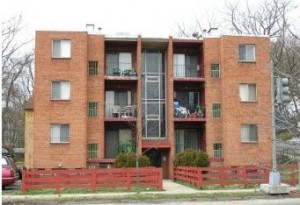Posted by Teresa on July 30, 2010 under Landlord Tips | 
 When a property is advertised to be sold “as is,” it can mean a great bargain, or a barrel full of trouble. But is the “as is” designation always a deal-breaker?
When a property is advertised to be sold “as is,” it can mean a great bargain, or a barrel full of trouble. But is the “as is” designation always a deal-breaker?
Not to many savvy rental property investors. “As is” simply means the sellers don’t guarantee the property’s condition and won’t be making any repairs. It doesn’t always mean that something is wrong with the property.
Sometimes there is nothing wrong—the sellers just aren’t up for extended negotiations over replacing gutter straps and repairing a chip in the trim paint. “As is” could also mean the sellers just don’t have any cash to make repairs, or they need every penny of the proceeds of the sale.
It’s perfectly acceptable to ask the seller’s agent why the property is being sold “as is.” Then, when you know, you can decide whether or not to continue with your due diligence. Of course, major defects must be disclosed, like leaking pipes, a bad roof or drainage problems. If the sellers elect not to provide the disclosure, that’s a bad sign.
If you decide to go ahead with an offer, it should be contingent on giving you plenty of time to conduct professional inspections for mold and insects, as well as a general home inspection. If the inspections reveal any major issues, you can still walk away. If small problems are exposed, it’s okay to ask the sellers to cover the repair expenses. They might not, but you never know.
While “as is” homes are a gamble, they are certainly not something rental property buyers should exclude from consideration in every case. Ask your fellow landlords about their experiences, get advice from trusted advisors, and proceed with caution!
Posted by Teresa on July 27, 2010 under Landlord Tips, Tenant Screening & Background Checks | 
 According to MPF Research, the apartment rental market is showing signs of improvement, as the vacancy rate declined from 8.2% to 6.6% in the first half of 2010.
According to MPF Research, the apartment rental market is showing signs of improvement, as the vacancy rate declined from 8.2% to 6.6% in the first half of 2010.
That’s good news for landlords. Perhaps you’re already seeing an increase in the number of prospective tenants viewing your rental properties. If you’d like to fill your vacancies fast, this might be a good time to review our tips for selling a good prospect on your rental unit. Don’t let a good tenant go just because you failed to close the deal and get a signed lease!
Remember, there is more to renting an apartment than the unit itself. People want to feel good about where they live. Highlight the following:
- Good communication with owners or management: let the prospect know how well you handle interaction with tenants. Examples of great communication include 24/7 emergency availability in case of emergency, a stellar call response policy, and active listening—which starts the minute you meet the prospect.
- Demonstrated level of professionalism: when you’re on time, your documents are in order, the unit is clean and ready, the grounds are professionally maintained, and you have the statistics to back up why your property is the best, who wouldn’t feel good about living there?
- Location: make it your mission to know every business and attraction within a 5-mile radius. Letting the prospective tenant know there is a dry cleaner, grocery store, library, park, and coffee shop close by could seal the deal.
- Amenities: even if you don’t have a first-class gym or on-site laundry, list the amenities you do offer. Things like water-saving fixtures, low-VOC paint, professional landscaping and free parking are good news to many good tenants.
When the prospective tenant shows signs of interest, be proactive and close the deal. People sometimes have a hard time making a final decision, so it’s up to you to help them:
- Have a lease application ready. Never show a unit to a prospect without one.
- Get a commitment: ask them to complete the lease application.
- Let them know you only want the best tenants, so there will be an application fee to cover paperwork and required tenant screening.
- Your goal should be to collect a signed application, first month’s rent, and security deposit at the same time. Let the prospective tenant know if they do not qualify, the rent and deposit will be returned.
- Remind the prospect that you are showing the rental unit to additional prospects and you cannot hold it without a deposit.
You don’t have to be pushy. If you have a good prospective tenant who needs a great apartment, it’s just a matter of putting the two together. As the rental property owner, it’s your job to make this win/win situation happen!
Posted by Teresa on July 23, 2010 under Housing Trends, Landlord Tips | 
 Regardless of the economy or the rental market, it is always a good time to retain your tenants. To keep tenants from moving out, some landlords have been offering incentives like free cable and even large-screen TVs to go with them. But is it really worth it to invest that kind of cash into keeping tenants?
Regardless of the economy or the rental market, it is always a good time to retain your tenants. To keep tenants from moving out, some landlords have been offering incentives like free cable and even large-screen TVs to go with them. But is it really worth it to invest that kind of cash into keeping tenants?
Actually, yes. Savvy rental property owners know that keeping tenants is a good idea. Here are three reasons why you should retain tenants when possible:
1. Empty units cost money. Whether or not a rental unit is producing income, it is costing you money.. Mortgage payments, taxes, maintenance, lawn service, and sometimes even utilities continue to chip away at your cash reserves, while It could take one, three, four months or longer to find an acceptable new tenant. Why not do what you need to do to keep a current tenant in place?
2. Turnover is costly. There are a number of expenses associated with turning over a rental unit to a new tenant:
- Advertising
- Management fees for finding a new tenant
- Installing new carpeting, flooring, or paint
- Repairs
- Damage each time furniture is moved in and out
- Lost rental income during the changeover
- Tenant screening
Landlords are better off delaying these expenses as long as possible. You don’t want to incur these costs before you absolutely must. And don’t forget—the time needed to complete the changeover to a new tenant is lost rental income, too.
3. Reduced rents: It’s all about perception. A full building looks like a good place to be, and frequent tenant turnover looks bad. If your tenants are regularly moving out of your rental units, it can affect the rent you can charge. Think about the impact on potential new tenants if, each time they do a drive-by look at your apartment building or 4-plex, there is a moving van out front—and it’s not being unloaded. Potential future tenants will get the impression that nobody wants to live there, and the value of your rental will decline. Stability means desirability, which means higher rent.
Whether it means giving lease-renewing tenants a DVD player, a restaurant gift card, or free cable upgrades, it is usually worthwhile to invest a little to keep a tenant happy and in place.
Posted by Teresa on July 20, 2010 under Landlord Paperwork and Forms, Landlord Tenant Lawsuits | 
 When Does a Landlord Need a Lawyer?
When Does a Landlord Need a Lawyer?
In short, landlords need expert assistance from landlord/tenant lawyers when a legal issue becomes serious or has the potential to be expensive. Here are several such scenarios:
When you’re starting out. It could be worth the extra expense to have your lease agreements, pet policies, security deposits and other legal documents prepared by a a law professional. You don’t want to discover during a tenant dispute that the lease you downloaded from the Internet is illegal in your state. And you don’t want to be sued for having discriminatory language on your lease. If you prepare your own lease documents or use publicly-available documents, you should at least have a lawyer review them before you use them.
When you experience your first eviction. Having an experienced attorney prepare all the required documentation the first time you evict a tenant is an investment in your landlord education.
When a tenant files a complaint. Sure, you can represent yourself. And if a tenant files a baseless complaint, you might just need to present the attorney-prepared documents with the tenant’s signature as proof of your innocence. But if things get sticky, if the complaint is regarding something serious like discrimination, or your tenant hires a lawyer, you might want to do the same for yourself.
When you want to reinforce a policy with a tenant. If you’ve done the phone call, email, letter routine to a tenant in violation of the lease, a quick letter from an attorney will often produce a quick result.
If you’re going into mediation or arbitration with a tenant or former tenant. It’s good to know your options, your legal standing, and what you can choose to compromise on when you go into the arbitration process.
If your tenant files a lawsuit for damages. You don’t want to take a lawsuit too lightly. Tenants who have been injured on your rental property, who have suffered losses due to your alleged negligence, or who have banded with their neighbors to file discrimination or other charges probably mean business. You probably don’t want to face serious charges without an attorney by your side.
Whenever things get dicey between you and your tenants, it could be worth the expense to hire a good landlord/tenant attorney.
Posted by Teresa on July 16, 2010 under Landlord Tips | 
 Whole volumes could be written about the difference between “damage” and “wear and tear;” but every landlord knows that tenants can be hard on a rental property. Most landlords have walked into a rental unit for a move-out inspection and been shocked at the damage they discover.
Whole volumes could be written about the difference between “damage” and “wear and tear;” but every landlord knows that tenants can be hard on a rental property. Most landlords have walked into a rental unit for a move-out inspection and been shocked at the damage they discover.
Don’t fall into the habit of performing all damage repairs and maintenance when you’re between tenants. Granted, that’s the best time to clean carpets, repair floors, and replace appliances. But it’s too easy to feel pressured if your tenant is anxious to move in. That’s when small problems and repairs will be neglected.
Conducting periodic inspections and continually maintaining your rental property is the only way to stay ahead of the game—and protect its value. The old adage, “a stitch in time saves nine,” has never been so true. Repair expenses just keep rising; between labor costs and materials, you’re definitely going to be better off fixing a problem while it’s small.
Keep these repair supplies in your vehicle to take care of issues while they’re manageable:
- Hinges and latches (standard sizes and colors for all your rental unit will make this easier)
- Paint and brushes or shoe-polish-like applicators
- Floor scratch cover
- Rhino Glue
- Duct Tap
- Spackle
- Extra linoleum tiles
- Basic tools
- Garbage Bags
During periodic inspections, do a quick check on window locks and frames, door knobs, locks, hinges and frames, woodwork and trim, and cabinet doors. Tighten any that need it. Look up at the ceiling and inside kitchen and bathroom cabinets for signs of water damage. Listen to the toilet to see if it’s running. Drips and leaking toilets are easily repaired, and if caught early, can prevent serious damage later. See to scuffs and chips on walls and cover with a bit of paint.
If you have a great handyman you can call on for jobs that are above your skill level, great! If not, you should develop a relationship with one. Ask around your network for recommendations. Electricians and plumbers specializing in quick response or small jobs are also valuable to have in your contact list. You never know when you’ll need any of these pros.
By keeping on top of rental property maintenance, you’re doing yourself a big favor when you’re pressed for time between tenants—and you could be preventing the headaches and repair bills that come from neglecting rental property.
Posted by Teresa on July 12, 2010 under Housing Trends, Landlord Tips | 
 When it comes to advertising a rental property, most landlords are sure to include the basics: the number of bedrooms and bathrooms, any included appliances, and of course, the area of town or neighborhood it’s in.
When it comes to advertising a rental property, most landlords are sure to include the basics: the number of bedrooms and bathrooms, any included appliances, and of course, the area of town or neighborhood it’s in.
But you might be surprised to hear that potential tenants also want to know about an area’s walkability rating. What’s that? Walkability is a way to determine how close a property is to shops, grocery stores, libraries, and other amenities that people want. If you can get there by leaving the car in the garage, it’s walkable—and the more amenities within walking distance, the higher a property’s walkability rating.
Walkability means that tenants can avoid the congestion, parking, and pollution associated with driving—and still get their errands run. Walkability makes a neighborhood more pleasant to live in—and studies show that more amenities within walking distance can boost home values. Given that tenants want walkable residences, you might want to advertise the walkability rating for all your rental properties.
How do you know if your vacant rental is in a walkable neighborhood? It’s quick and easy on WalkScore.com, a popular site that measures how many amenities are within walking distance of any address. While the site’s algorithm gives the actual distance from an address to stores, restaurants, movie theaters and public transportation, it doesn’t factor in safety, street design or topography. So, it won’t mention any huge hills you’d have to climb to reach the nearest bookstore.
While WalkScore.com will likely add improvements like topography and presence of sidewalks, it’s still a clear snapshot of the amenities surrounding your rental property. Whether or not you include a walkability rating in your rental ads, consider using this tool to inform potential tenants of all the great stores, restaurants, and coffee shops that are close to your rental units.
Posted by Teresa on July 2, 2010 under Landlord and Tenant FAQs | 
 Margaret is a landlord who’s trying to do her best to make all of her tenants happy—in hopes that they’ll renew their leases and save her the time and effort of finding new tenants. But she’s discovering that keeping one group of tenants happy could be putting her in legal hot water.
Margaret is a landlord who’s trying to do her best to make all of her tenants happy—in hopes that they’ll renew their leases and save her the time and effort of finding new tenants. But she’s discovering that keeping one group of tenants happy could be putting her in legal hot water.
Here’s what happened: Margaret owns a four-plex rental property, with a shared carport, individual patios, and a common back yard. There are no fences or dividers, and each tenant uses the back yard as they please. Two of her tenants have children, and two do not. All are on one-year leases.
The basic lease that all four tenants signed stipulates that children are allowed to play in the front and back yard areas of the building, and on sidewalks that lead up to the unit they live in. They are not to play in the carport.
Stacy is one of the tenants without children. She complained to Margaret that her neighbors’ kids were playing too close to her patio, and too loudly. She threatened to move at the end of her lease, which was coming up in 60 days. Stacy is an ideal tenant—never late with her rent, respecting Margaret’s time and appreciative of her efforts to keep the rental unit well-maintained. She rarely complained about anything.
Margaret wanted to appease Stacy. Besides, she agreed with her that it was unfair for the neighbors’ kids to play near her patio, disturbing Stacy’s peace and quiet. So Margaret sent letters to the two tenants with children, informing them that effective immediately, the children’s play area would be limited to their own front sidewalks and patios.
The result? The parents responded negatively, and threatened legal action against Margaret. And they had a legitimate point—their leases, clearly stipulating where the children could play, were still in place. Additionally, the lease only mentioned quiet hours from 10:00 p.m. to 7:00 a.m. So, Stacy’s noise complaint had no basis.
All of Margaret’s tenants signed the same lease. If Stacy had an issue with the rules about where kids could play, she should have dealt with it before she signed the lease. And if Margaret wants to change the rules for her long-term lease tenants, she can only do so at lease renewal time.
Landlords are also obligated to comply with the Fair Housing Act, which forbids discrimination against tenants due to familial status. So her rule about where children can and cannot play should apply to all tenants, not just children—just to be safe.
 When a property is advertised to be sold “as is,” it can mean a great bargain, or a barrel full of trouble. But is the “as is” designation always a deal-breaker?
When a property is advertised to be sold “as is,” it can mean a great bargain, or a barrel full of trouble. But is the “as is” designation always a deal-breaker?





